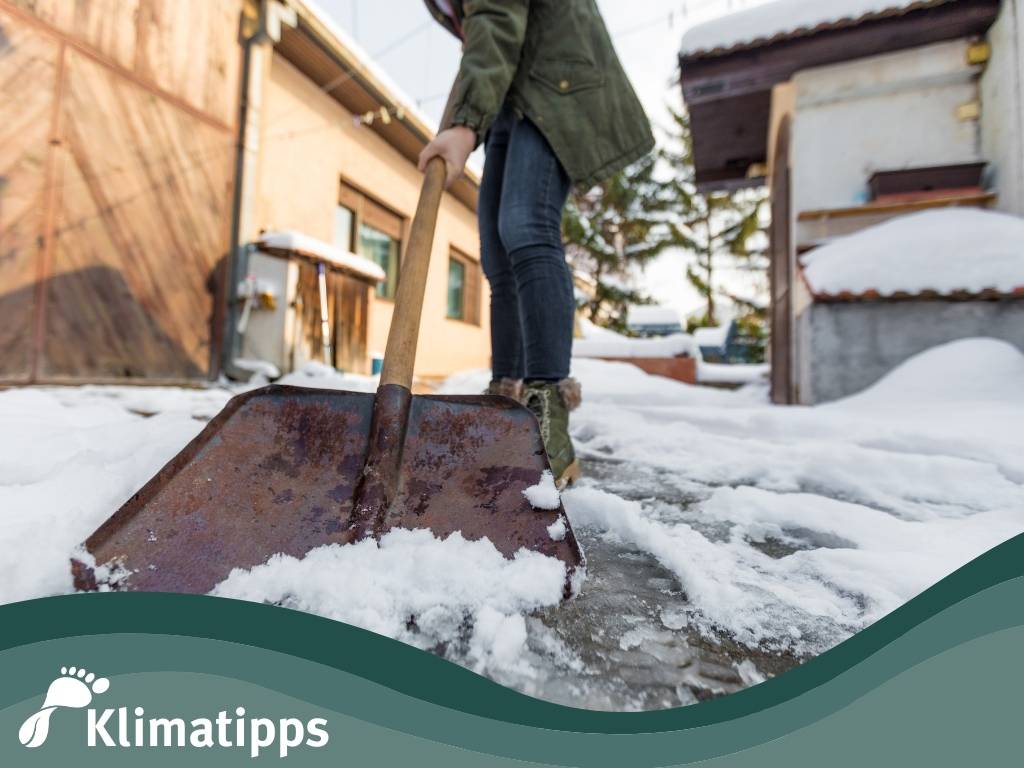When to use Gfriar - alternatives to conventional road salt

Every year, when the snow falls from the sky, sidewalk managers rejoice at the sporting activity of clearing the snow. The less compacted the snow is, the easier it is to remove. To prevent it from turning into an ice rink, salt is spread in many places. However, this is not very environmentally friendly and can damage plants, animals, bodies of water, vehicles and buildings. Many municipalities and local authorities have banned the private use of road salt on sidewalks.
Technical" sodium chloride (NaCl, "table salt", but not in a quality suitable for consumption) is usually used as road salt, as well as calcium and magnesium chloride or other salts.
In public areas (mainly roads), it is still used in the form of pre-wetted salt in addition to deadening substances.
The problem of road salt
In spring in particular, damage to adjacent trees and green spaces, such as dead buds, discolored leaves and brown lawns, are visible signs. Soil quality also suffers considerably because it increases its pH value and compacts the soil, making soil aeration and water absorption more difficult. Soil organisms can also be harmed.
Road salt is also problematic for our groundwater, as it can only be removed from the water by reverse osmosis, which is too expensive. As a result, road salt, especially the mineral chloride it contains, enters the water cycle. It is toxic to fish, amphibians, other aquatic creatures and birds and harms our pets.
Our cars and bridges, roads and the steel girders of buildings are also attacked over the years due to the high corrosive activity of road salt. Experts estimate that corrosion damage to bridges, vehicles and our environment results in enormous costs.
What can we use instead?
There are various alternatives on the market, but you have to look carefully. The Austrian environmental consultancy warns: "Unfortunately, due to a lack of declaration of ingredients on most packaging, it is not clear which alternative substance to salt - i.e. sodium chloride, calcium chloride and the like - is involved. Many of the products with labels such as 'gentle on dogs' paws', 'does not harm trees or plants' or 'salt-free' contain nitrogen in the form of ammonium sulphate or urea. They are therefore not recommended."
You can use blunting agents (e.g. grit, granulate or sand) in moderation with a clear conscience. When shopping, look out for the Blue Angel for salt-free gritting agents should be observed. On the other hand, we should only use energy-intensive gritting agents (e.g. expanded clay) sparingly.






